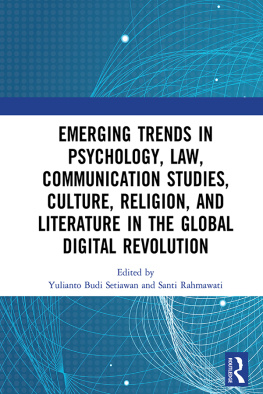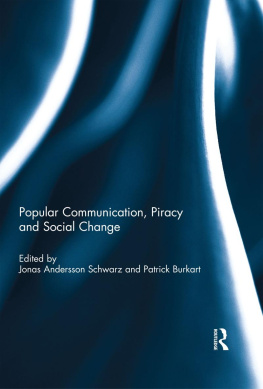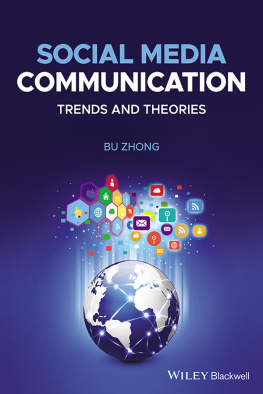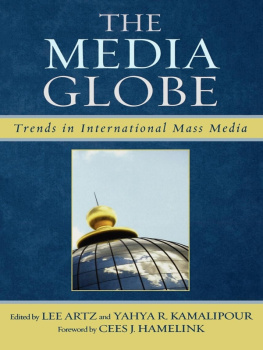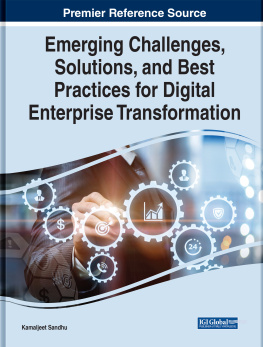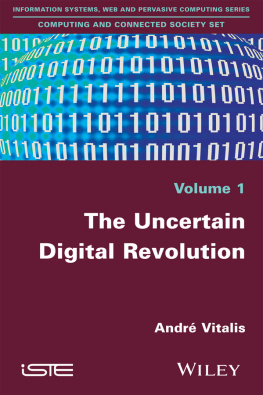EMERGING TRENDS IN PSYCHOLOGY, LAW, COMMUNICATION STUDIES, CULTURE, RELIGION, AND LITERATURE IN THE GLOBAL DIGITAL REVOLUTION
Routledge is an imprint of the Taylor & Francis Group, an informa business
2020 Taylor & Francis Group, London, UK
All rights reserved. No part of this publication or the information contained herein may be reproduced, stored in a retrieval system, or transmitted in any form or by any means, electronic, mechanical, by photocopying, recording or otherwise, without written prior permission from the publisher.
Although all care is taken to ensure integrity and the quality of this publication and the information herein, no responsibility is assumed by the publishers nor the author for any damage to the property or persons as a result of operation or use of this publication and/or the information contained herein.
Library of Congress Cataloging-in-Publication Data
Names: International Conference on Social Sciences Series: Psychology, Law, Communication Studies, Culture, Religion and Literature (1st : 2019 : Semarang, Indonesia) | Setiawan, Yulianto Budi, editor. | Rahmawati, Santi, editor.
Title: Emerging trends in psychology, law, communication studies, culture, religion, and literature in the global digital revolution : proceedings of the 1st International Conference on Social Sciences Series: Psychology, Law, Communication Studies, Culture, Religion and Literature (SOSCIS 2019), Semarang, Indonesia, 10 July 2019/ editors, Yulianto Budi Setiawan, University of Semarang, Indonesia, Santi Rahmawati, Research Synergy Foundation, Bandung, Indonesia.
Other titles: Proceedings of the 1st International Conference on Social Sciences Series: Psychology, Law, Communication Studies, Culture, Religion and Literature (SOSCIS 2019), Semarang, Indonesia, 10 July 2019
Description: London ; New York : Routledge, [2020] | Includes bibliographical references and index.
Identifiers: LCCN 2020005868 (print) | LCCN 2020005869 (ebook) | ISBN 9780367338367 (hardback) | ISBN 9780429322259 (ebook)
Subjects: LCSH: Social sciences--Research--Congresses.
Classification: LCC H62.A3 I575 2019 (print) | LCC H62.A3 (ebook) | DDC 303.48/33--dc23
LC record available at https://lccn.loc.gov/2020005868
LC ebook record available at https://lccn.loc.gov/2020005869
Published by: CRC Press/Balkema
Schipholweg 107C, 2316XC Leiden, The Netherlands
e-mail: Pub.NL@taylorandfrancis.com
www.crcpress.com www.taylorandfrancis.com
ISBN: 978-0-367-33836-7 (Hbk)
ISBN: 978-0-429-32225-9 (eBook)
DOI: https://doi.org/10.1201/9780429322259
The digital revolution is a change from analog mechanical and electronic technology to digital technology, which has happened since around 40 years ago. The impact of the development of digital technology has brought great changes to the civilization of world life.
Various parties feel facilitated in accessing information. All information regarding issues of Psychology, Law, Communication Studies, Culture, Religious, and Literature, can be easily accessed by anyone anywhere and anytime. However, with the development of technology, even more, negative impacts are felt rather than positive impacts. This can be seen from the existence of information that is excessive and not based on facts (hoaxes) in digital media so that it can provoke people to take wrong actions.
Through this international conference SOSCIS (Social Sciences Series: Psychology, Law, Communication Studies, Culture, Religious, and Literature), we raised the theme Responding to Digital Revolution. This conference contains research articles that discuss the impact and solutions in facing the development of the digital revolution. We hope this conference can answer the needs of the community.
Regards
Yuliyanto Budi Setiawan
Santi Rahmawati
General Chair
Dyah Nirmala Arum Janie
General Co-Chairs
Aria Hendrawan
Anna Dian Savitri
Subaidah Ratna Juita
Tatas Transinata
Hendrati Dwi Mulyaningsih
Conference Coordinator
Santi Rahmawati
Ani Rachmawati
Febrialdy Hendratawan
Conference Support
Almas Nabili Imanina
Information and Technology Support by Scholarvein Team
Editors:
Yuliyanto Budi Setiawan
Universitas Semarang
Anna Dian Savitri
Universitas Semarang
Subaidah Ratna Juita
Universitas Semarang
Scientific Reviewers:
Jaggapan Cadchumsang
Khon Kaen University, Thailand
Rukchanok Chumnanmak
Khon Kaen University, Thailand
Mochamad Chaerul Latif
Universitas Semarang
Piyanard Ungkawanichakul
Srinakharinwirot University, Thailand
Ali Ghufron
IKIP PGRI Bojonegoro, Indonesia
Putu Doddy Sutrisna
University of Surabaya, Indonesia
Rini Sugiarti
Universitas Semarang
Sulistyawati
Ahmad Dahlan University, Indonesia
Haslinda Anriani
Tadulako University Palu, Indonesia
Paripat Pairat
King Mongkuts University of Technology
North Bangkok, Thailand
J.Vignesh Kumar
National Institute for Research in Tuberculosis (NIRT), Indian Council of Medical Research (ICMR), India
Hardani Widhiastuti
Universitas Semarang
Jerny Dase
Hasanuddin University, Indonesia
Kim Alvin C. De Lara
Department of Education- Division of Rizal, Philippines
Amri Panahatan Sihotang
Universitas Semarang
Rohadi
Universitas Semarang
Bhargavi Kaveti
Kakatiya University, Telangana India
Liberty Nyete
University of Venda, South Africa
Tay Kok Wai
Universiti Kebangsaan Malaysia, Malaysia
Sruthi V.S.
Jawaharlal Nehru University, India
Garry Kuan Pei Ern
Universiti Sains Malaysia, Malaysia
Endah Pujiastuti
Universitas Semarang
Hardani Widhiastuti
Universitas Semarang, Semarang, Indonesia
ABSTRACT: This article researched the influence of personality, as well as with the Big Five personality traits extraversion, agreeableness, conscientiousness, neuroticism, and openness to experiences on work performance in terms of behavior and results, in this case, at PT Jamsostek region of Central Java and DI Yogyakarta region using 186 subjects. The results showed a positive influence of extraversion and agreeableness on job performance and behavior. Neuroticism negatively affected results, and openness to experiences affected behavior positively. Measurement results have met the criteria for goodness of fit, among others, indicated by the value of the chi-square = 4.274; probability = 0.233; GFI = 0.992; AGFI = 0.878; TLI = 0.996; CFI = 0.955; RMSEA = 0.061; CMIN/Df = 1.425, besides the results of the regression coefficients that describe the influence on performance behavior on work of 0.17. Based on that account, the account officer must provide good service to customers at all times.
Keywords: personality, behavior performance, outcome
INTRODUCTION
The impact of the economic crisis that began in 1998 has been felt by most industries, including banking and finance. Business was no exception and the state of business has become a safe measure of the ongoing economic crisis. The side that felt the impact most was human resources management.
Performance orientation is associated with positive performance on the part of an employee (Sonnentag, 2000). If the distribution performance of the individual factors can be accurately determined, extensive information can be obtained regardless of the theoretical and practical contents generated in addition to variation and distribution of slope performance. Also alleged to be very closely related with the performance of particular behaviors is personality. The theory of personality has many facets related to an individuals behavior. Five factor theory of personality or the Big Five personality theory highlights not only intelligence but also the stability of emotions, experiences, confidence, and socialization of an individual. Therefore, with a background of problems encountered, we have attempted to analyze whether the elements of ones personality determine performance results or behavior.

